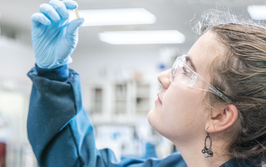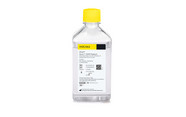A Blast From Potions Past
Are ancient texts hiding the answer to antibiotic resistance?
Some view science as a relatively modern invention, but scientific knowledge and ingenuity go back thousands of years, even if the language used to describe phenomena sound ridiculous to modern sensibilities. As an example, in medieval times diseases were thought to be transmitted by dragons. It sounds outrageous, but it means that there was at least an understanding that some diseases are airborne.
I want to share a fascinating research project that stems from studies in arts and humanities rather than science. Subjects that fall under the umbrella of arts and humanities are sometimes perceived to have less practical value, but there is potential for these subjects to make a difference in many ways. They should not be dismissed or forgotten. Let us consider the problem of antibiotic resistance. Pharmaceutical companies are urgently seeking an answer, but have they thought to look in the past?
I recently became involved in a pilot study where I am working alongside microbiologists to test Anglo-Saxon recipes for antibacterial effectiveness. My colleagues and I didn’t really set out with any intention of making an important medical discovery; we simply found it fascinating.
I study history, particularly Anglo-Saxon England and the Viking world. One day, a colleague asked me about Anglo-Saxon antibiotics; after all, infections have been around forever. Because we had a wider network of people around us who were interested in infectious disease we decided to test an old remedy to see if it had any antibiotic effects. We turned to Bald’s Leechbook – an old English medical text that contains various recipes (some of which sound insane) passed on from various sources, including the Romans – and decided to test a remedy for styes – eye infections caused by Staphylococcus aureus.
And so off we went to recreate the recipe as authentically as possible, with ingredients such as garlic, wine and bile from a cow’s gall bladder. The recipe had very precise steps; to start, we had to pound it and strain it through a clean cloth (not pleasant!). Not just any cloth, either – Bald’s Leechbook is often quite specific about what textiles to use. It sounds crazy until you consider that wool, for example, has compounds such as lanolin, which affect different chemical reactions. We also had to use a brass vessel, leave the mixture to stand for nine days, and so on… There were many steps and we followed as best as we could. The finishing touch? Applying the ointment with a feather. It was an entertaining exercise, but when we applied the ointment to cultures of MRSA bacteria, I didn’t think it would work.
But I wouldn’t be writing this following a failure. Sure enough, it killed the bacteria. We were astonished and did a few other experiments; none of the ingredients worked separately, but together the outcome was always the same, resulting in up to 99 percent of the bacteria being killed. So we decided to try it on mice, with the help of a bacteria expert in Texas. The recipe still worked. Our collaborator was stunned!
Our university press officer thought it was intriguing too so she thought we should put out a press release. Soon after that, it seemed that the entire world was interested. The story went viral – we were receiving hundreds of emails every day from newspapers, as well as patients demanding that we hand the recipe over. Nothing can prepare you for that kind of attention!
We’ve written a research paper on the work, which is due out soon. And now we’re looking further into the research to see if there is more potential there. Of course, this is extremely early work and we have no idea if it can be transferred to humans.
It is amazing to think that somewhere in Europe all those years ago someone wrote down this knowledge. Which begs the question, where will the spark of inspiration for the next antibiotic or blockbuster medicine come from? Future scientists? Scientists of the past? Or maybe from academics studying arts and humanities? We’re certainly looking forward to testing more recipes from Bald’s Leechbook…


















